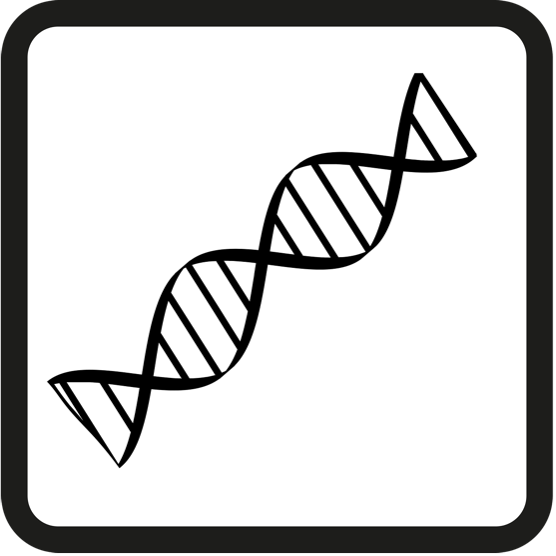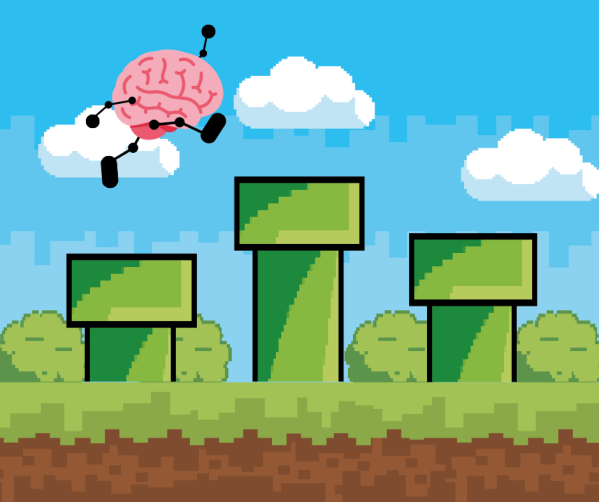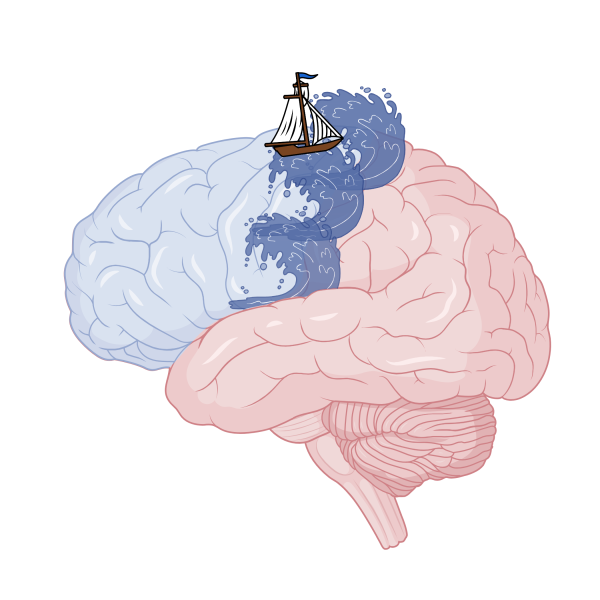Genes may not be the only thing parents are passing down to you.
Exergames: The video games that won’t “rot” kids’ brains
Combining the benefits of fitness and cognitive training games to help kids succeed in the classroom.
Catching the brain’s tallest waves
Cortical spreading depolarizations, the tsunami of brain waves, play a role in everything from migraines to traumatic brain injuries.
A new tool to bypass common drug side effects
Scientists are developing a therapeutic tool to treat disease that avoids common side effects.
A dog’s eye view: Exploring the visual system from the kennel to the clinic
Ever wonder what the world looks like to your dog? Turns out, the canine visual system is a lot like yours, and it’s helping researchers explore cures for blindness.
Neuro MythBusters: The truth behind 10 common myths about your brain
Several myths about the brain are so popular that you might not realize they’re false. We’ll break down what these myths claim, where they came from, and whether there’s any truth behind them.
Lessons from Mike the Headless Chicken: The importance of the brainstem
Can chickens literally run around with their heads cut off? If they still have a brainstem, surprisingly, yes!
Taking a “trip” through the impact of psychedelics and the conscious experience
Psychedelic compounds are known for the mind-altering properties of their psychedelic “trips”. But does taking these drugs also have lasting impacts on the way we see the world?
ChatGPT versus the brain: A nerve-wracking matchup
ChatGPT is able to write entire essays and explain rocket science while speaking in Shakespearean English. But does it have enough to take the world intelligence title from the human brain?
How Brain Synchrony Connects Us
When you interact with another person, your brain activity matches theirs!
From Paleolithic to Petri dish
What growing ‘mini brains’ of our ancestors can tell us about ourselves
What do our pets really think about us?
Anyone who has pets will understand the strong bonds we feel towards them. But can our pets really understand this feeling, and how do they feel about us?
Talking to ourselves: The neuroscience behind the voice in our heads
Your ability to communicate with yourself is an influential part of day-to-day life. Research is beginning to uncover how inner speech works, how you can leverage it to improve your life, and what happens when a brain can’t quite recognize its own voiceover.
Your brain on burnout: how your brain changes when you burnout
Burnout has been a popular topic of discussion over the last few years, but do you know what’s going on in your brain when you experience burnout?
Autism spectrum disorder linked to long-ignored brain area
What overlooked part of the brain could be contributing to autism?
Healing from the hypothalamus
When we get hit with an infection, the reaction of a brain structure called the hypothalamus makes us feel sick – but its unpleasant responses are also important steps on the way to healing.
Thinking about mind over matter
Many people use the power of positive thinking to accomplish amazing feats, but how far can this go? Can we use our thoughts to literally think away diseases?
Mighty microbes: The gut-brain axis and the motivation to exercise
The bacteria in your gut may be helping move more than your bowels– they can actually improve your overall health! Read about how a healthy balance of microbes in the gut can improve motivation to exercise
10 Big Unanswered Questions in Neuroscience (Part Two)
We are back this week with Part Two in our series on some of the biggest (and often surprisingly) unanswered questions in neuroscience!
Can you control your dreams?
Learn how controlling your dreams may allow scientists to unlock the mysteries of consciousness while you sleep.
Can fungus turn ants into zombies?
A parasitic fungus infects ants and manipulates their behavior. What’s happening behind the scenes?
Changing body, changing brain
Everything your corny sex-ed class didn’t tell you about puberty’s effects on brain development.
10 Big Unanswered Questions in Neuroscience (Part One)
Now that we’ve peered into distant galaxies and put a man on the moon, the true final frontier may be our very own brains!
Who do you become when you’re sleepy?
How does sleep deprivation affect the brain?
Monoclonal Antibodies: From COVID-19 to Alzheimer’s
Unpacking the two newest FDA-approved drugs for Alzheimer’s disease
First steps toward a new approach to overcoming memory loss
Losing your memory can be devastating, but a promising new study is paving the way toward a new approach to treating memory loss.
Can a racing heart lead to a racing mind?
In a recent study, neuroscientists found that the physical sensation of a rapidly beating heart is enough to cause anxiety.
Don’t move a muscle
Our body’s built-in brakes keep us safely still even while our brains remain active during REM sleep.
Shopping the brain: How to find regions to test drive
With a complex organ like the brain, how do neuroscientists decide where to focus their attention? Two newer technologies are paving the way for a fast process that helps researchers make this important decision.
The lonely brain: The neuroscience of social isolation
The COVID-19 lockdown resulted in an abrupt, unprecedented social isolation. How do our brains react to social isolation? What do we know about the neuroscience behind social isolation and loneliness?





























